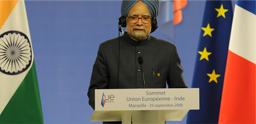Guar Farmers Caught in a Futures Market Gambit

Thousands of guar farmers in India are today caught in a vicious cycle fuelled by the spectacular rise in the prices of guar seed and guar gum products during the six months period between October 2011 and March 2012. The prices of guar seed (Cyamopsis tetragonoloba) and guar gum (extracted from guar seed) rose over 900 percent in the futures markets during this period largely due to speculative buying (coupled with market manipulation through circular trading, cross deals and other market abusive practices) by big traders and non-commercial players. The rally in the prices came to an end when Forward Markets Commission (FMC), the…




